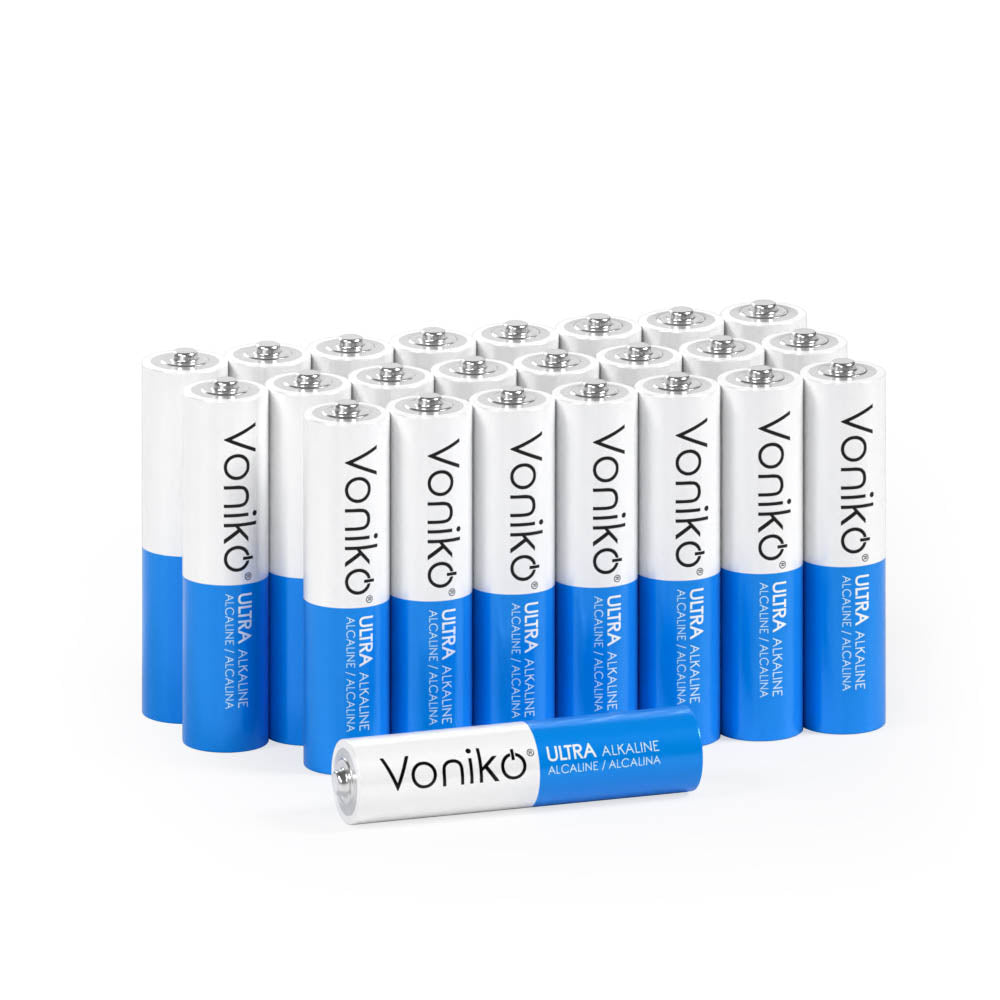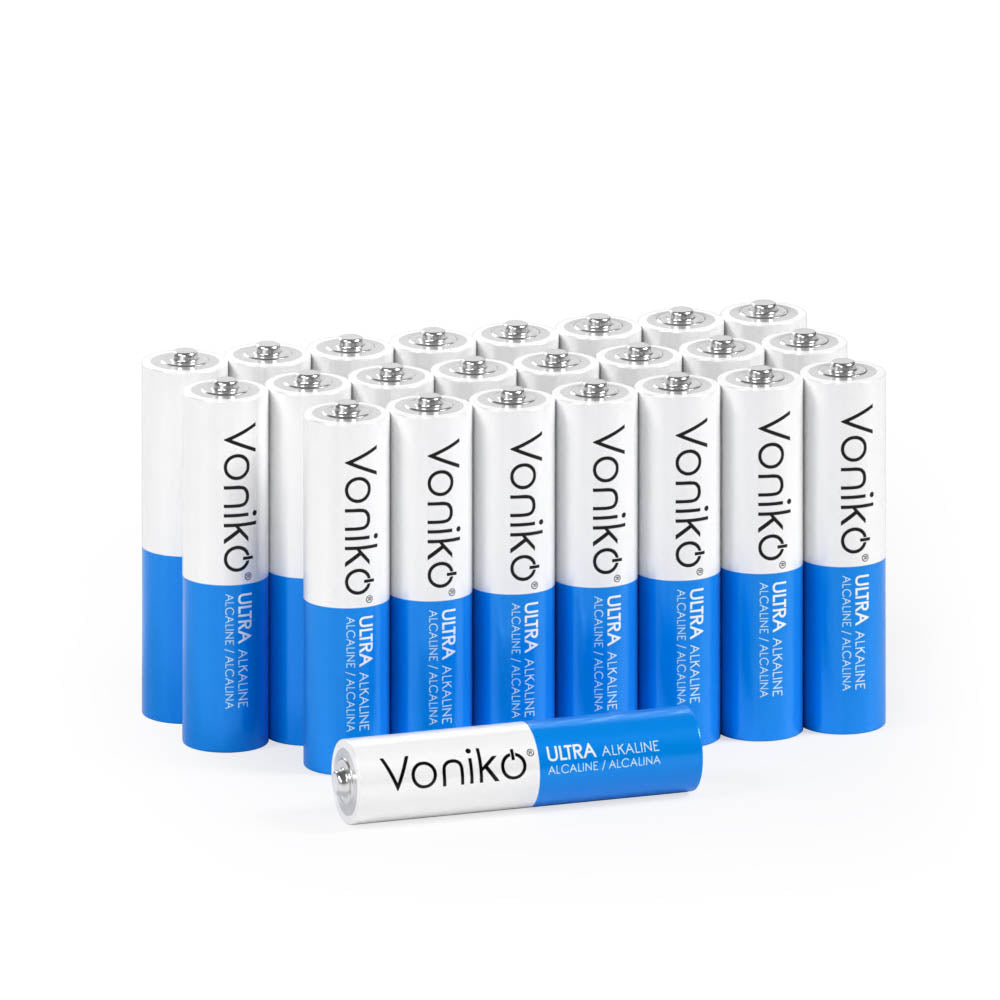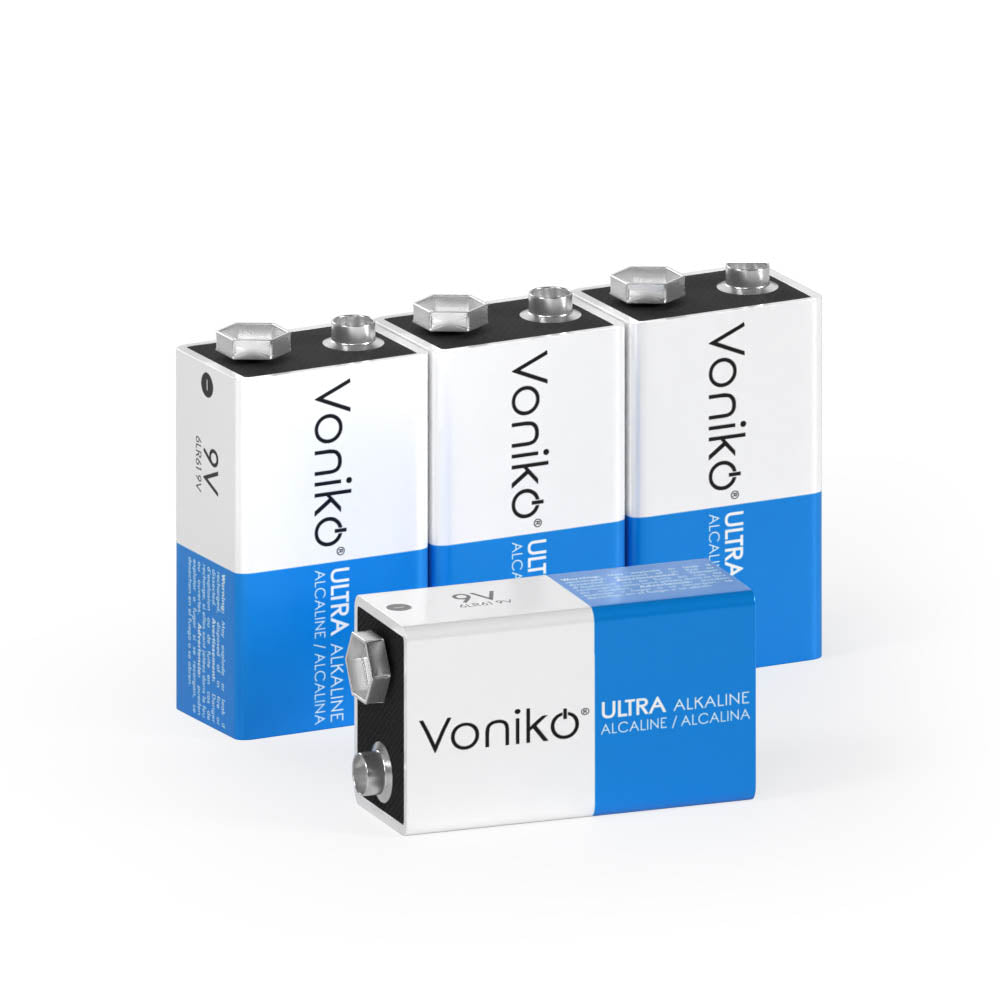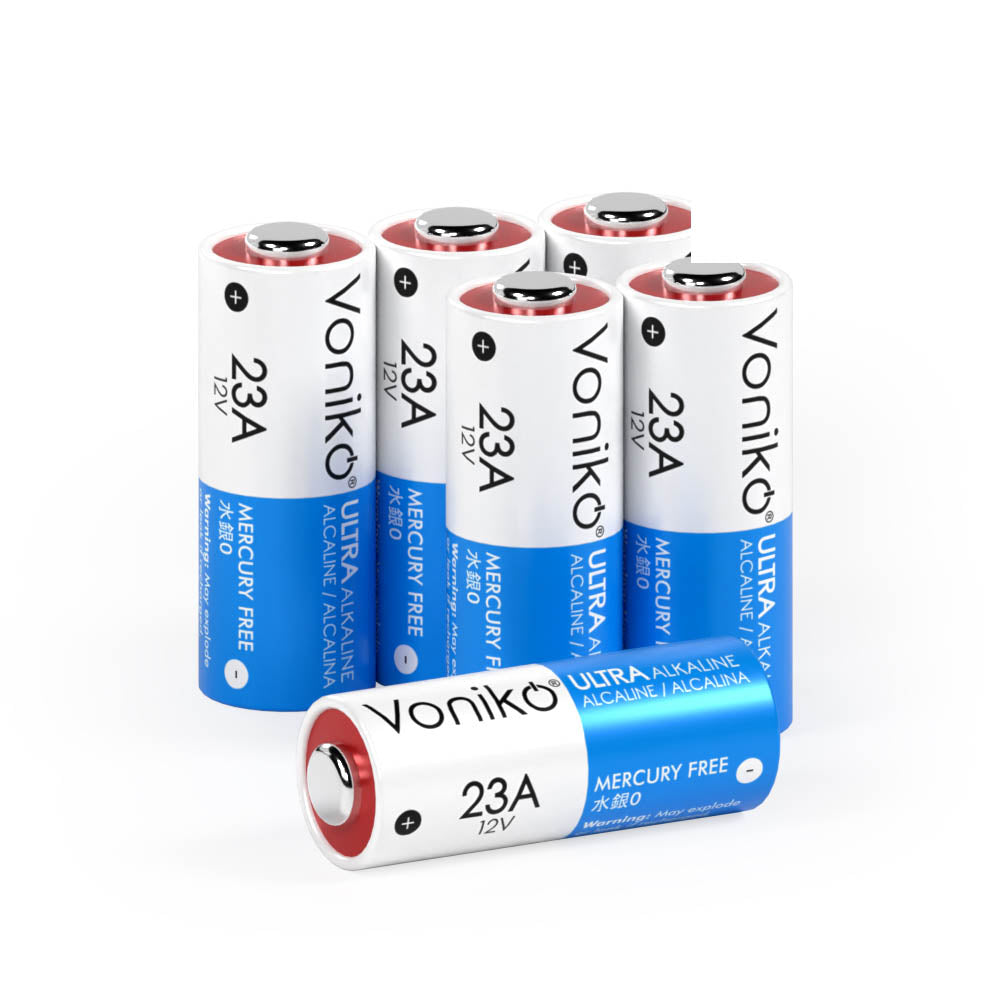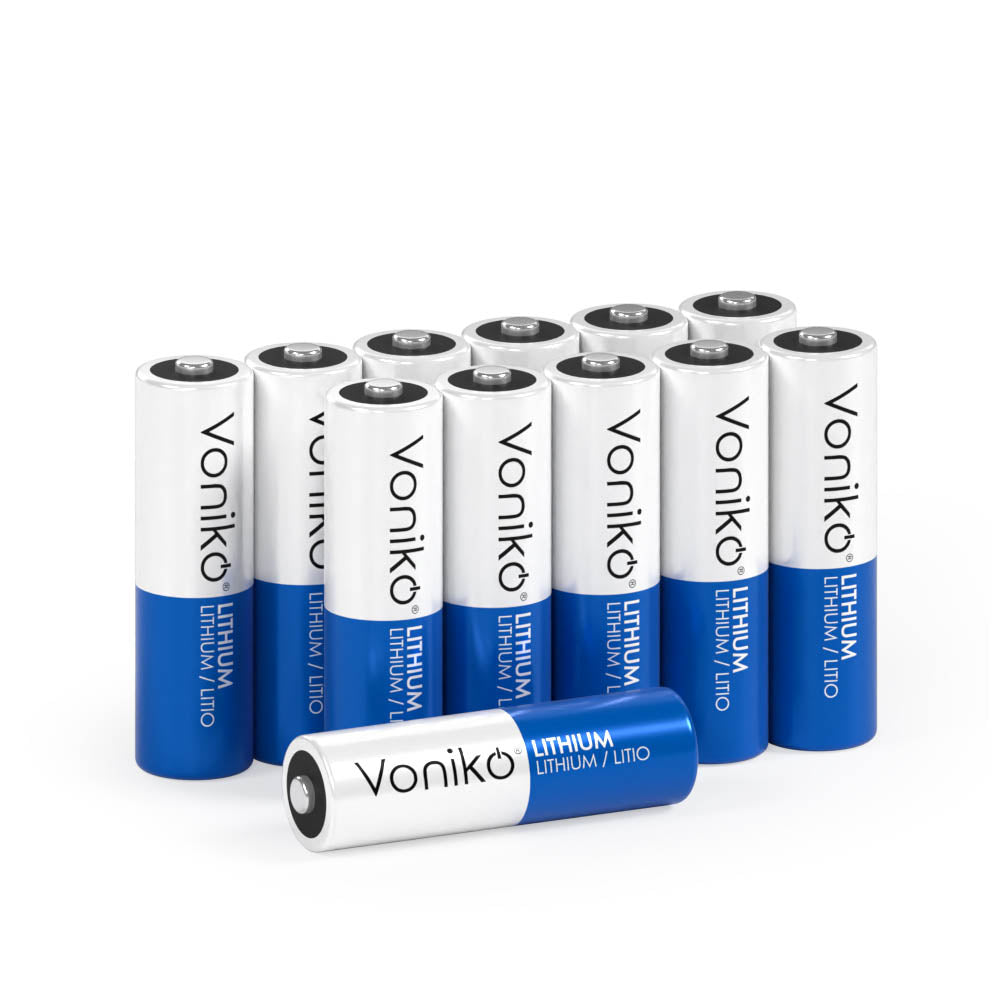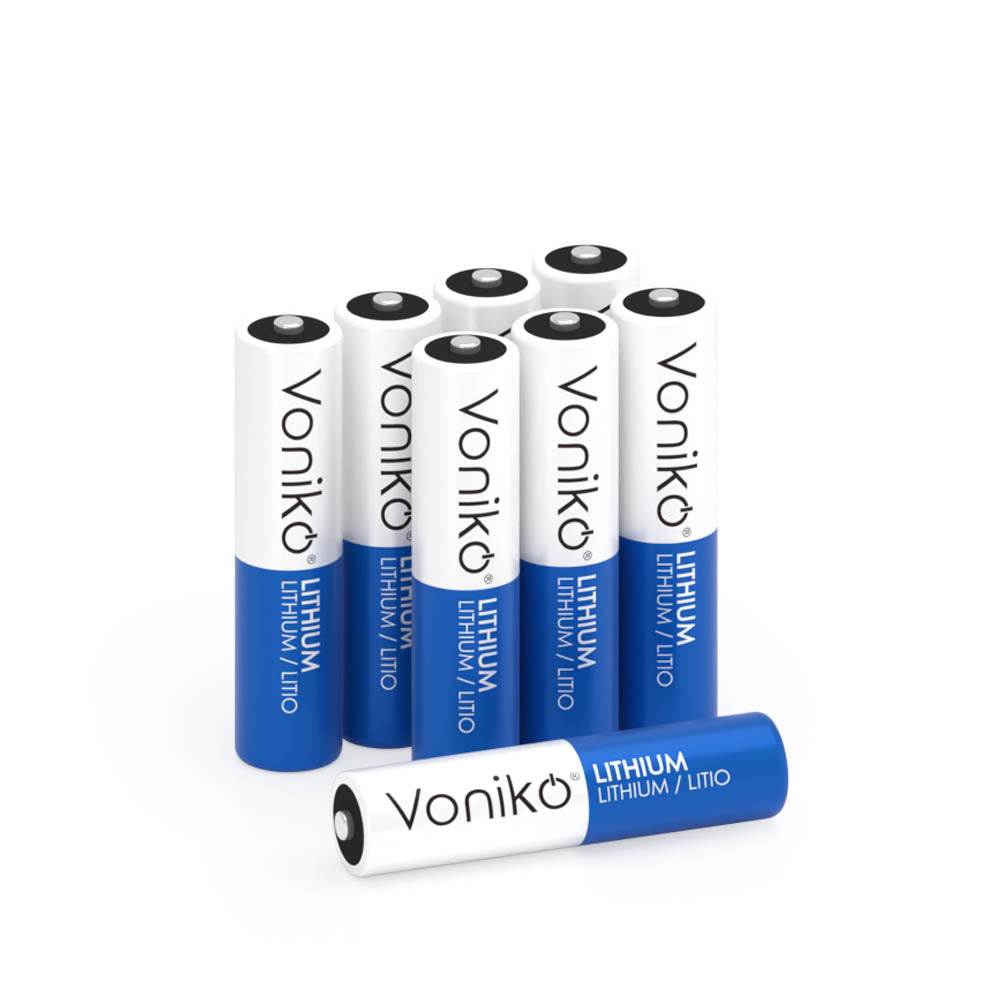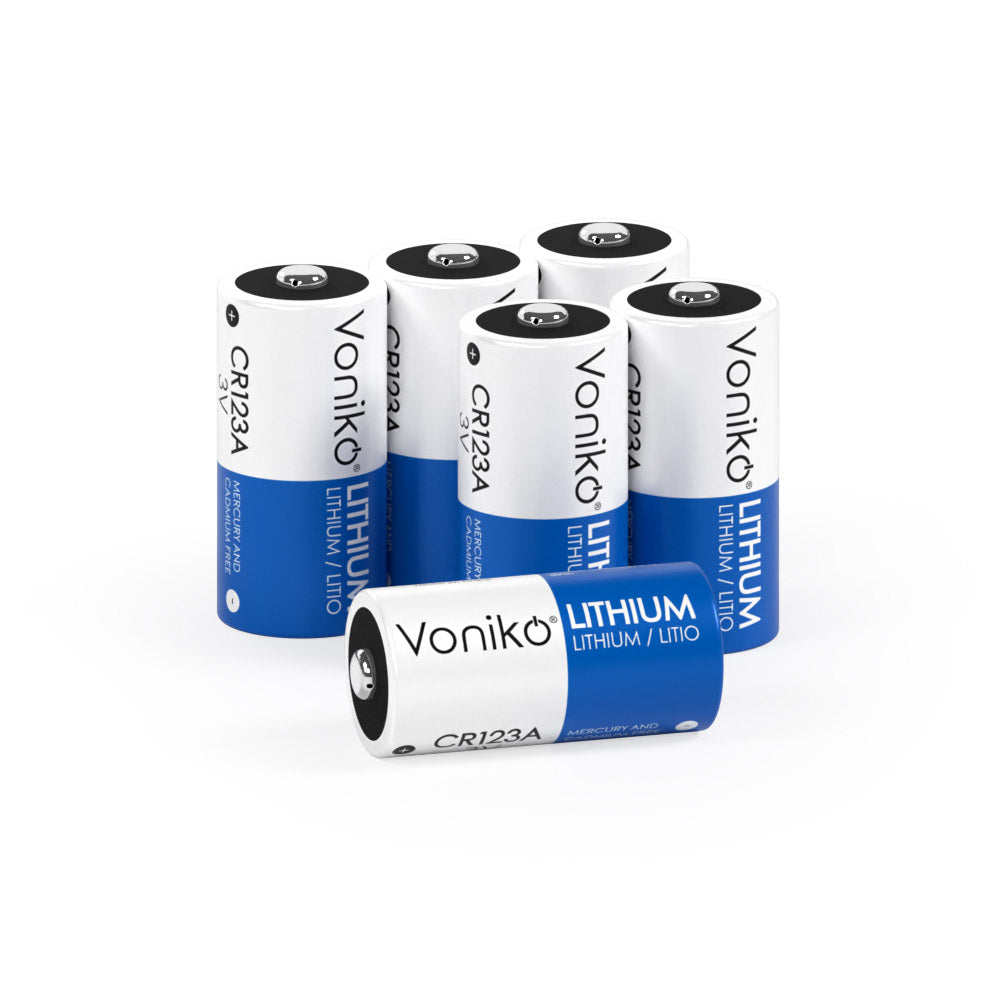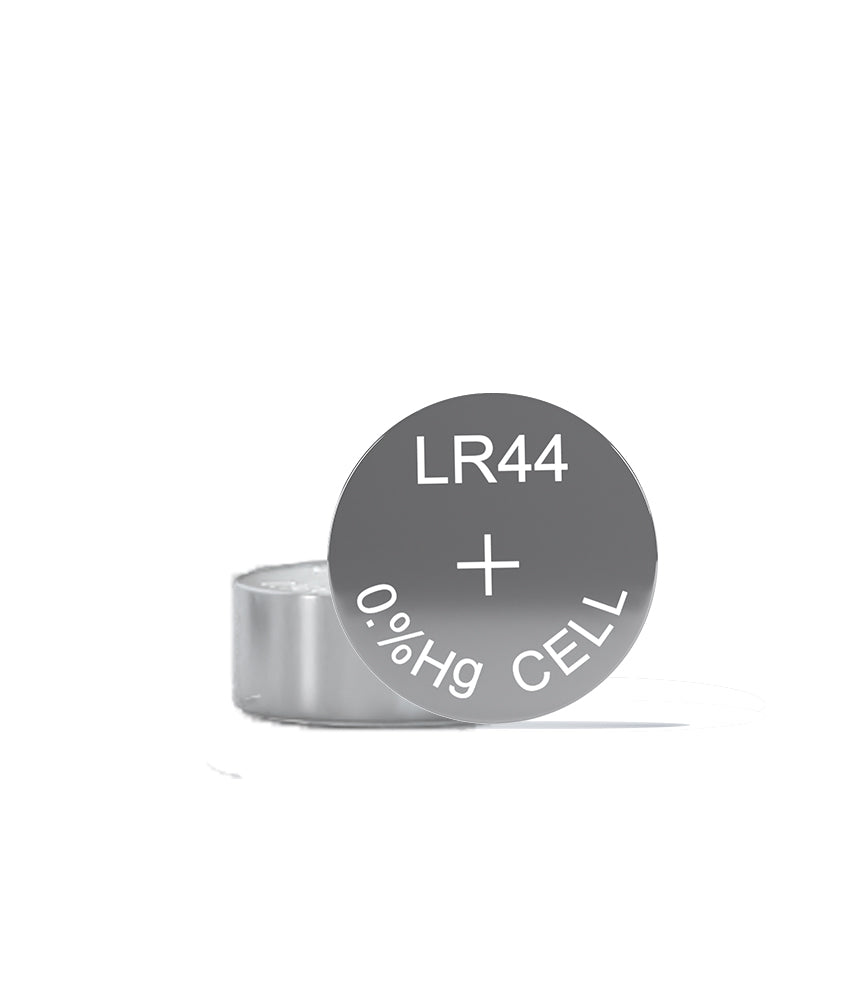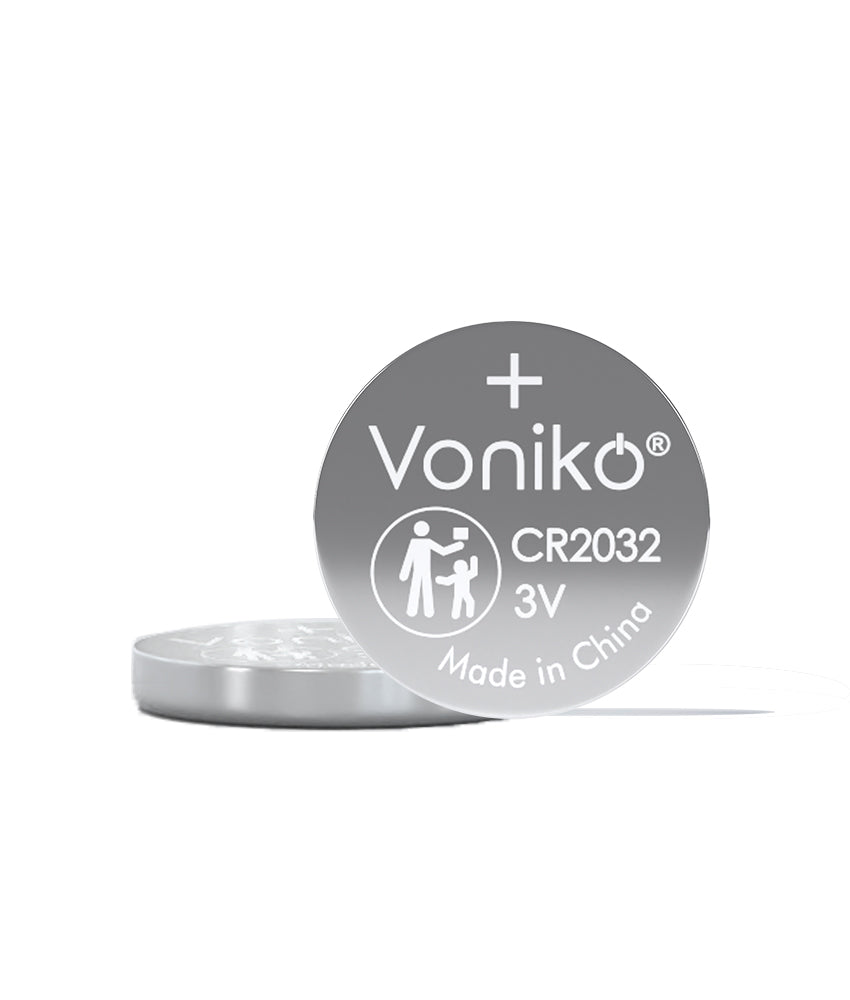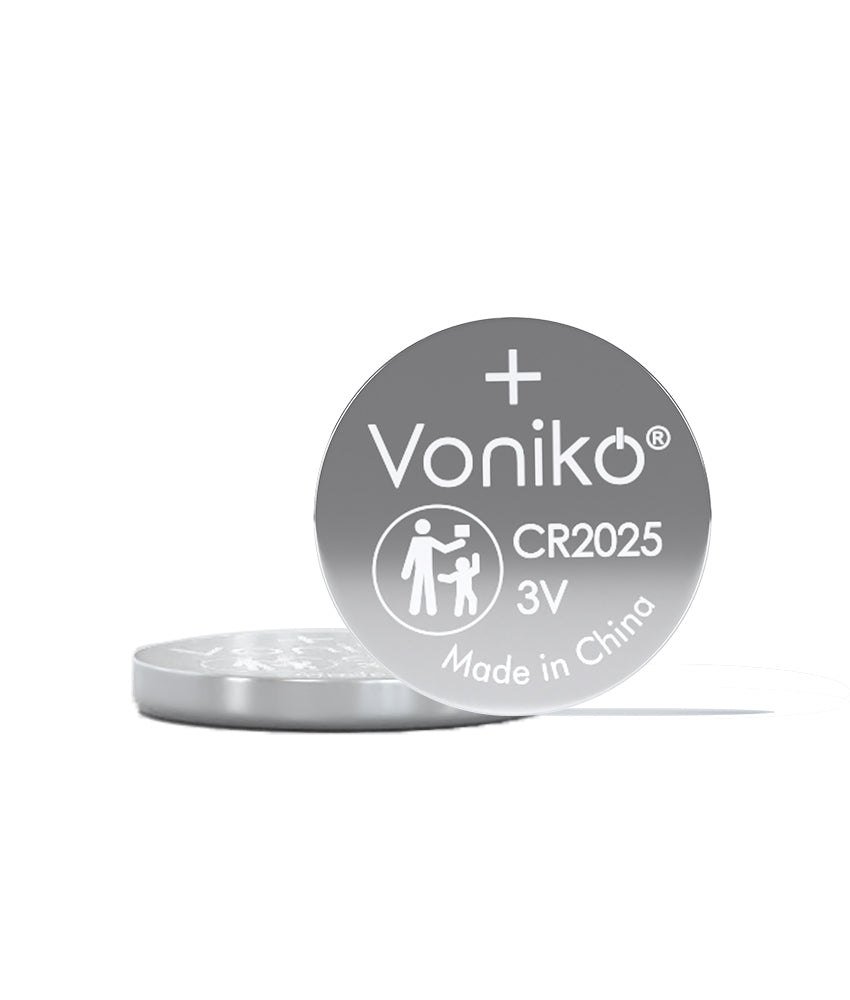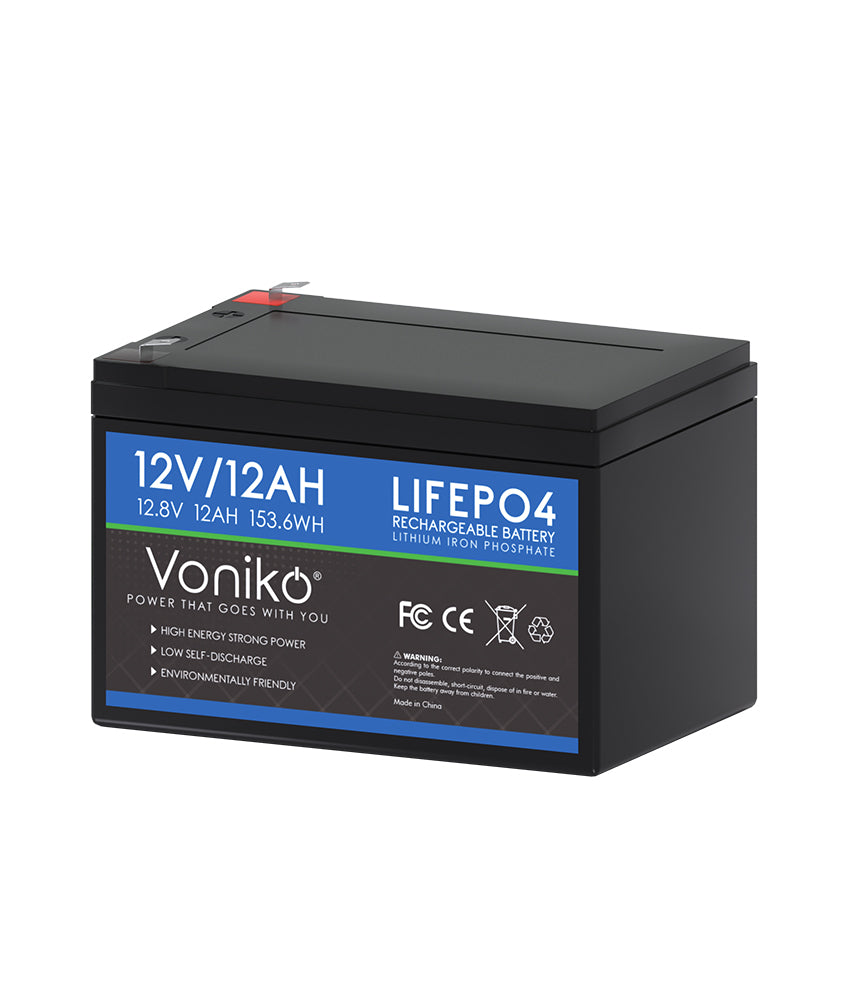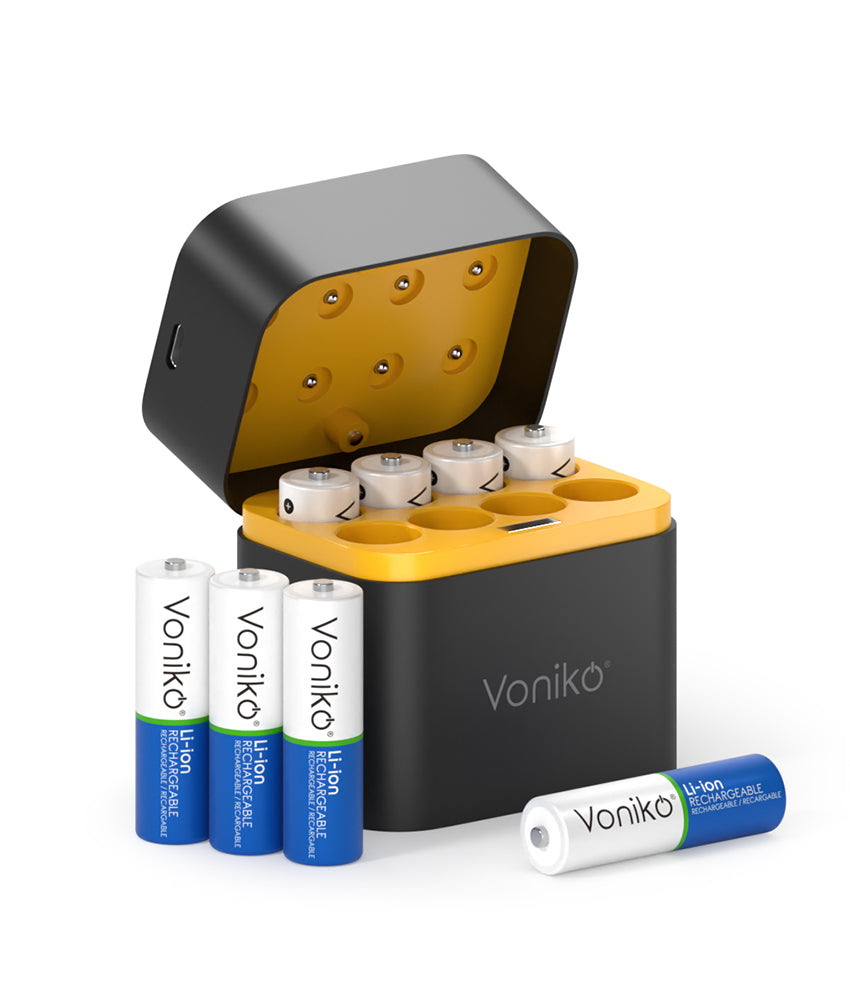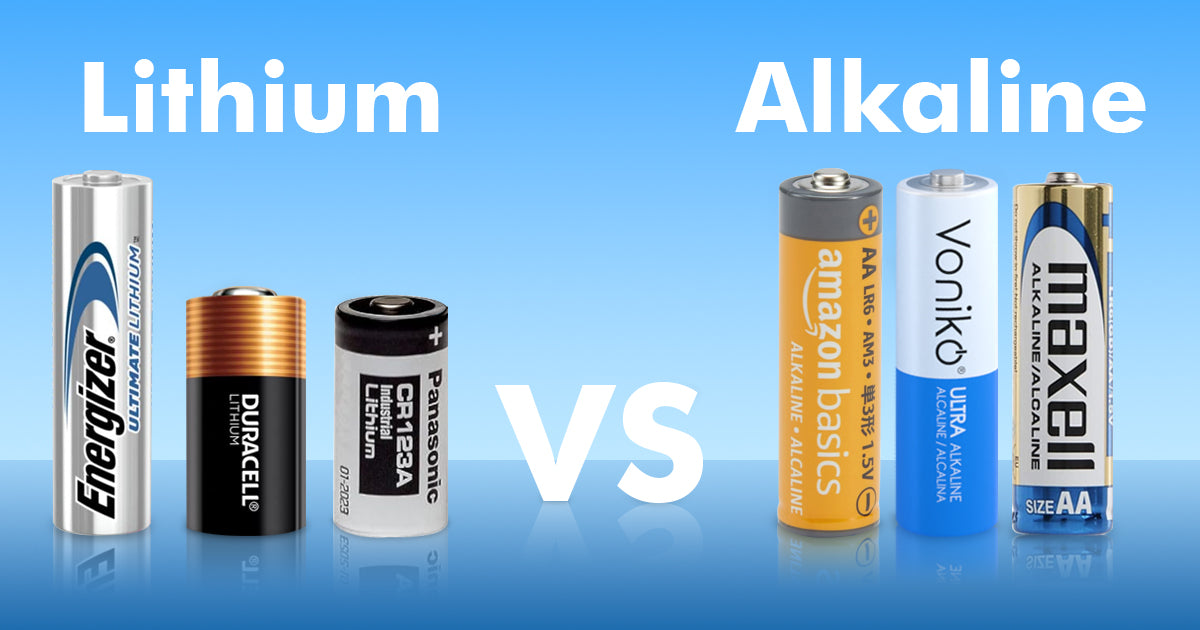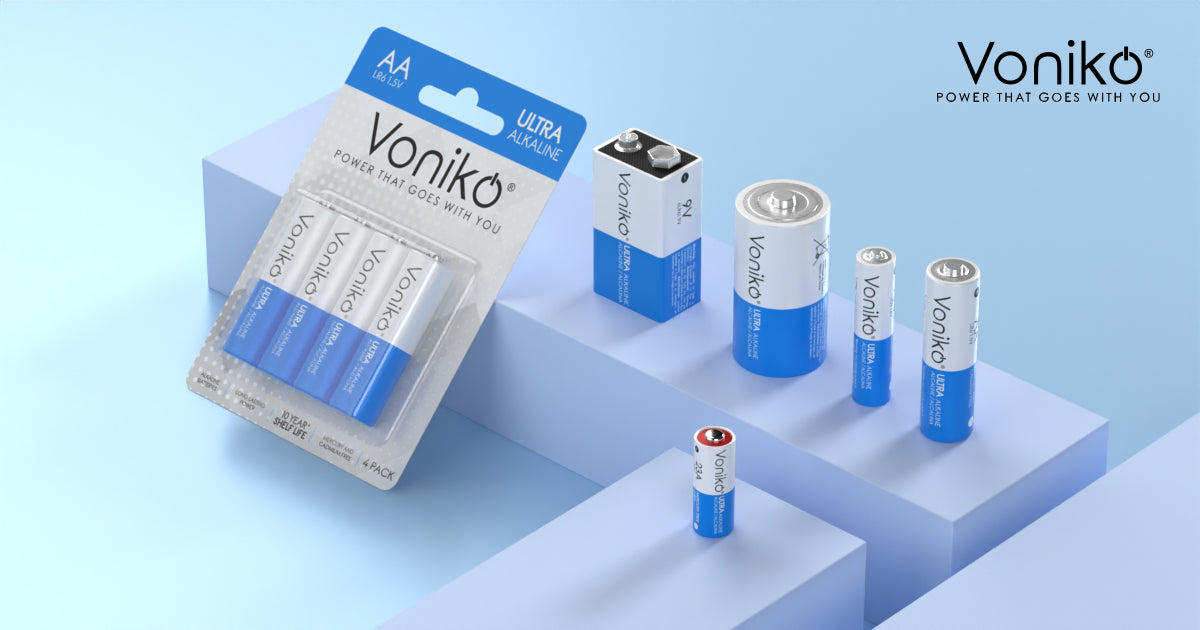When choosing batteries for your device, be it a small flashlight, AirTags, or blink cameras, you would be confused by all the batteries in the market. There are alkaline batteries and lithium batteries, and what are their differences? How much time do they last once they are used in our device? What should I choose for my own situation? As a battery manufacturer for over 25 years, let Voniko explain to you everything about them and compare their characteristics and uses so that you know which one to choose.
Performance Differences
Lithium batteries last much longer than alkaline batteries—about 8 to 10 times longer. They also keep a steady power level as they are used, while alkaline batteries slowly lose power over time. This makes lithium batteries better for devices that use a lot of energy.
Temperature Performance
Lithium batteries excel in extreme temperatures, functioning reliably in both very cold and very hot environments where alkaline batteries would fail to operate properly. This makes lithium batteries particularly valuable for outdoor applications and devices used in harsh conditions.
Weight
Lithium batteries are approximately 30% lighter than equivalent alkaline batteries. This weight advantage makes lithium batteries preferable for portable devices, especially those carried for extended periods like headlamps, cameras, and cordless power tools.

Cost Considerations
Initial Cost vs. Long-term Value
Alkaline batteries have a significantly lower upfront cost, making them more affordable for immediate purchase. However, lithium batteries, despite costing up to five times more initially, offer better long-term value because they don't need to be replaced as frequently. Since lithium batteries last 8-10 times longer, the cost per use is actually lower for lithium batteries in many applications.
Return on Investment
For devices that are used frequently or require consistent power, lithium batteries typically provide a better return on investment over time. The reduced frequency of replacement not only saves money but also reduces the inconvenience of changing batteries.
Best Applications

Devices Better Suited for Lithium Batteries:
-
Digital cameras and high-drain electronic devices
-
Outdoor equipment used in extreme temperatures
-
Medical devices requiring reliable power
-
High-tech and smart devices
-
Devices where battery replacement is difficult or inconvenient
-
Portable devices where weight is a concern
Devices Better Suited for Alkaline Batteries:
-
Low- to moderate drain devices
-
Toys and simple electronic devices
-
Remote controls
-
Flashlights (basic models)
-
Digital clocks
-
Smoke alarms
-
Devices used infrequently
What are the advantages of alkaline batteries?
Compared to lithium batteries, alkaline batteries are a good choice because they’re cheaper, easy to find, and work well in everyday items like remotes, clocks, and flashlights. They’re safe to use, especially in basic devices, and can sit on a shelf for years without losing much power. If you don’t need a lot of energy or use the device often, alkaline batteries are a reliable and affordable option.
What about the pros and cons of lithium batteries?
Lithium batteries are generally more environmentally friendly as they're often rechargeable and recyclable, with more than 90% of their raw materials being reusable. Alkaline batteries, being typically disposable, contribute more to environmental waste due to the need for frequent replacement
Lithium batteries are powerful and last a long time, but they also have some downsides. They cost more upfront than regular batteries, which can be a problem if you're on a budget. They can also be dangerous if damaged, overcharged, or exposed to extreme heat, as there’s a risk of fire or explosion. Making and throwing away lithium batteries can harm the environment because mining the materials pollutes land and water, and recycling them is not easy or common yet. They don’t work well in really hot or cold weather and slowly lose performance over time, even if you’re not using them. They’re also harder to ship due to safety rules and might not be the best choice if you need something simple, cheap, or long-lasting in storage. So while they’re great for certain uses, they’re not perfect for everything.

